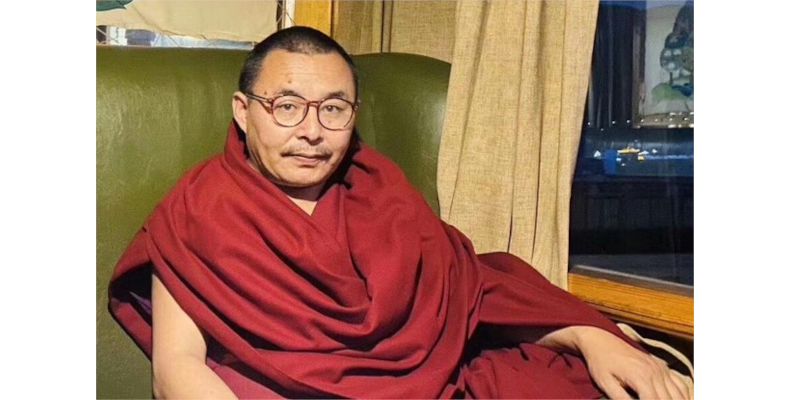Dharamshala, 25th January: According to RFA who cited Tibetan sources, popular Tibetan writer and poet Gendun Lhundrub remains incommunicado more than a year after his arrest in western China’s Qinghai region, with family members unaware of his location or present condition. Lhundrub, a monk at Rongwo monastery in Rebgong (in Chinese, Tongren) county in the Malho (Huangnan) Tibetan Autonomous Prefecture, was jailed after authorities had been monitoring him for signs of political dissent for a long time. Lhundrub was detained on his way to a religious debate in Rebgong on December 2, 2020.
RFA quoted its source who RFA claimed spoke on condition of anonymity to protect his contacts in the Rebgong area, “It has now been more than a year after his arrest, and very little is known about his condition or the official reason for his arrest, The event was witnessed only by a vegetable seller who saw him put into a black car by Chinese police, and no one else has any information about his arrest.”
“Though his family was informed by phone on Sept. 27, 2021, that Gendun Lhundrub’s trial date would be set soon, there has been no follow-up about this, and we have heard that he is being forced to undergo political re-education.”
Authorities have ordered Lhundrub to assist in the translation of Tibetan Buddhist texts into Mandarin Chinese, but he has questioned the necessity of doing so, resulting in open disagreement, and he was imprisoned only a few days after voicing his concerns.
Pema Gyal, a researcher with the London-based rights group Tibet Watch, said “Many Tibetan scholars and writers promoting Tibetan identity become the targets of the Chinese government, and most of them are eventually detained, The Chinese government believes that suppressing Tibetan scholars and writers will help to eradicate Tibet’s identity, so Chinese bilingual education policies and the translation of Tibetan Buddhist texts into Chinese are all part of this larger agenda,”
In recent years, Tibetan efforts to assert national identity have focused on language rights, with informally formed language schools being designated “illegal associations” and teachers are susceptible to detention and prosecution.







Leave a Reply